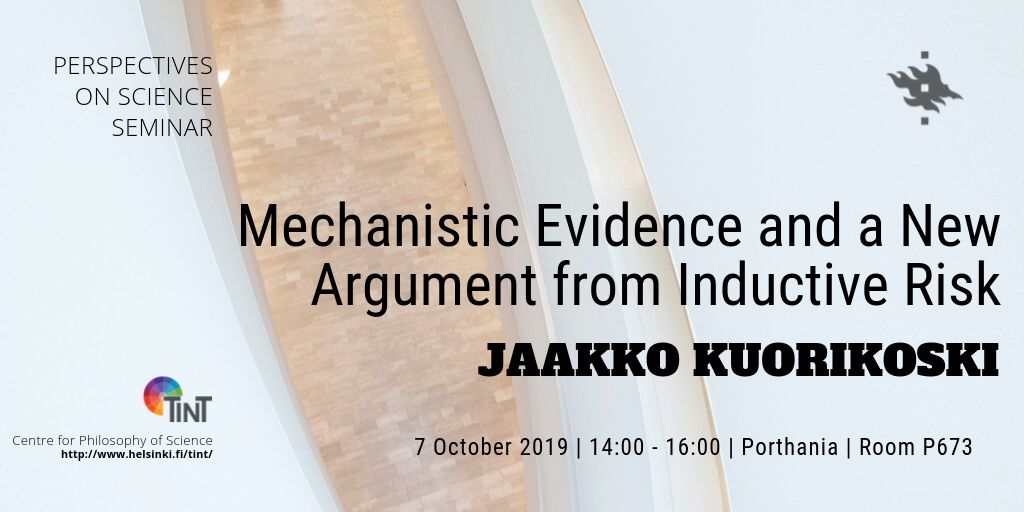At the next weeks Perspectives on Science -seminar (7.10.) Jaakko Kuorikoski (University of Tampere & TINT) will present his paper titled “Mechanistic evidence and a new argument from inductive risk”.
Author bio:
Jaakko Kuorikoski is a philosopher of science specialized in philosophy of social science and economics and is affiliated with the New Social Research Programme and philosophy at Tampere University and with TINT in Helsinki. He is currently working on new ways of combining different kinds of evidence in the social sciences (especially the use of research synthesis methods), models of cognitive diversity and collaborative problem solving, and methodological issues in macroeconomic modeling – among other things.
Paper abstract:
I present a novel account of mechanistic evidence and show how the contrastive nature of such evidence leads to new argument from inductive risk. First, evidential relevance of a finding is analyzed as constraining the set of possible mechanisms potentially realizing the investigated phenomenon. Second, evidence is efficient if it strongly favours a mechanistic hypothesis over a set of plausible alternative mechanistic hypotheses. The contrastive nature of mechanistic evidence means that evidence has an effect not only on a particular mechanism hypothesis H, but on the whole probability distribution over the alternative hypotheses. A natural way of analyzing the incremental impact of new evidence on a set of alternative hypotheses is in terms of uncertainty or ‘entropy’ reduction. Third, there is no unique single measure of uncertainty/entropy and, consequently, no single unique measure of uncertainty reduction. I then argue that the ‘right’ measure of entropy reduction, and hence of evidential strength, depends on the pragmatic context.

